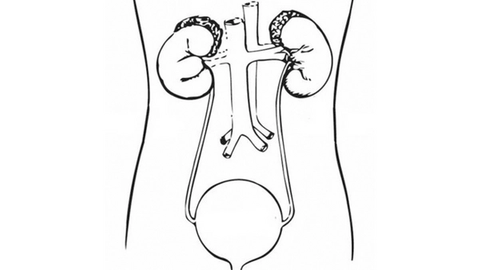The Targeted Pulse: Explore How a Community Practice Implemented Bispecific Antibody Therapy and Key Updates in Cancer Treatments
Promising results from the anti–LAG-3/anti–PD-1 combo for melanoma, FDA approval of inavolisib for PIK3CA-mutant breast cancer, significant survival benefits from talazoparib and enzalutamide in prostate cancer, and the launch of the TWINPEAK trial for gastric cancers.
Multidisciplinary Care Drives Success for Bispecific Antibody Use
Courtney Van Houzen, PharmD, shared her experience in bringing bispecific antibody treatments to a community setting in an interview with Targeted Oncology™. Houzen attributed exploring the use of bispecific antibodies to a conversation with 1 patient in particular. The patient was a snowbird who traveled to a warmer climate in the winter but still wanted to continue care at the Cowell Family Cancer Center in Traverse City, Michigan. This conversation led to a financial navigation strategy to make the program a reality.
“Our oncologist spoke with our pharmacy team to determine whether this therapy could be offered at a community site. This raised significant questions, so we gathered key stakeholders, including upper administration, given the high cost of these drugs. For a community center, that’s a crucial consideration. We also included pharmacy purchasing, clinical oncology pharmacists, providers, and nursing managers (both inpatient and outpatient) because we realized that if we accepted patients for bispecific therapy, we’d also need to handle ramp-ups safely,” said Houzen, clinical pharmacist and PGY-2 oncology resident at Munson Healthcare, Cowell Family Cancer Center.

Anti–LAG-3/Anti–PD-1 Combo Shows Long-Term Headway in Metastatic Melanoma
The combination of fianlimab (an anti–LAG-3 agent) and cemiplimab (Libtayo; an anti–PD-1 agent) demonstrated promising efficacy and safety in patients with advanced melanoma. Long-term follow-up data from a phase 1 study (NCT03005782) showed continued durability, consistent with initial findings presented at the 2023 American Society of Clinical Oncology Annual Meeting.
“I think there’s certainly a lot of excitement about this regimen. We have continued to see a doubling of the objective response rate observed [over] just anti–PD-1 therapy and have noted a common objective response rate more similar to ipilimumab (Yervoy) and nivolumab (Opdivo) in the frontline setting, but with a much better-tolerated safety profile. There are now additional ongoing studies in the adjuvant and frontline metastatic settings, so I think there’s certainly a lot of excitement there,” said Meredith McKean, MD, MPH, director of melanoma and skin cancer research at Sarah Cannon Research Institute, in an interview with Targeted Oncology™.

Inavolisib Plus Standard Therapy Gains Approval in PIK3CA-Mutant Breast Cancer
Inavolisib (Itovebi, previously GDC-0077) plus palbociclib (Ibrance) and fulvestrant gained FDA approval for the management of hormone receptor-positive (HR+), HER2-negative (HER2–), PIK3CA-mutated breast cancer. This approval is based on data from the phase 3 INAVO120 study (NCT04191499), which compared the standard of care combination with inavolisib against the standard of care combination with placebo.
“[Inavolisib] is unique. This agent does not just inhibit the target. In certain cells or contexts, it promotes the degradation of the target. You go after the target inhibited, and then you destroy it. The cells have no way to adapt and reactivate the same target because it's destroyed,” said Dejan Juric, MD, lead investigator of INAVO120, medicine-hematology and medical oncology at Massachusetts General Hospital Cancer Center, in an interview with Targeted OncologyTM.

Significant Benefit Shown With Talazoparib/Enzalutamide in Prostate Cancer
Talazoparib (Talzenna) plus enzalutamide (Xtandi) elicited meaningful overall survival improvement in all-comers as well as patients with homologous recombination repair (HRR) gene-mutated metastatic castration-resistant prostate cancer (mCRPC). The phase 3 double-blind TALAPRO-2 study (NCT03395197) evaluated the combination against placebo. Investigators are set to provide the full analysis at an upcoming medical meeting and shared data with global regulatory authorities.
“These overall survival results indicate potentially practice-changing efficacy for [talazoparib] in combination with [enzalutamide] for [patients] with metastatic castration-resistant prostate cancer,” said Neeraj Agarwal, MD, FASCO, professor and presidential endowed chair of cancer research at Huntsman Cancer Institute, University of Utah, and global lead investigator for TALAPRO-2, in a press release. “Metastatic castration-resistant prostate cancer is the most advanced and aggressive stage of the disease, and the TALAPRO-2 results provide much-needed hope to patients who remain in high unmet need of effective treatment options.”

PT886 and Pembrolizumab Trial Commences for Gastric and GEJ Cancers
The TWINPEAK trial (NCT05482893) has commenced, dosing its first patient with the combination of PT886 and pembrolizumab (Keytruda) for the potential treatment of gastric and gastroesophageal junction (GEJ) cancers.
The trial is a phase 1/2, open-label, dose escalation and expansion study with PT886, followed by a multi-cohort study in patients with advanced gastric, GEJ, or pancreatic ductal adenocarcinomas. This study examines PT886 in combination with chemotherapy and/or the checkpoint inhibitor pembrolizumab.
Trial investigators will assess the safety, tolerability, pharmacokinetics, pharmacodynamics, and preliminary efficacy of the agent in patients with locally advanced or metastatic gastric, GEJ, and pancreatic cancers.
Thank you for joining us for this week’s Targeted Pulse. Look out for more recaps to come.
Durcabtagene autoleucel shows high response rates in R/R multiple myeloma; olomorasib plus pembrolizumab demonstrates efficacy in KRAS G12C-mutated NSCLC; and the combination of talquetamab, daratumumab, and pomalidomide achieves durable responses. We also cover the FDA’s ODAC vote against checkpoint inhibitors for esophageal cancer.
Read More